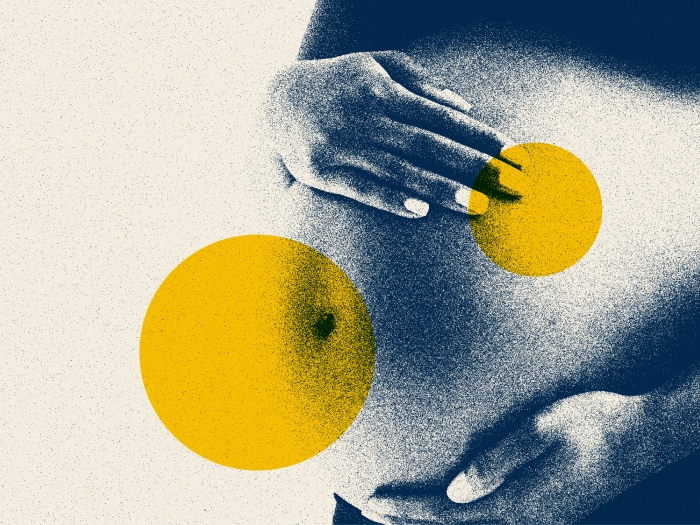The proverbial biological clock doesn’t seem to tick as fast for some women. A Michigan Medicine obstetrician explains the medical pros and cons of the societal trend.
7:00 AM
Author |

Celebrity moms Halle Berry, Janet Jackson and Salma Hayek are just some of the high-profile members of the over 40 and fertile club — all having their first children after their 40th birthdays.
MORE FROM MICHIGAN: Sign up for our weekly newsletter
And it's not just Hollywood. Starting families later is more prevalent now than ever before. For the first time, women in their 30s are having more babies than women in their 20s, according to data released this year by the Centers for Disease Control and Prevention.
The CDC data show that the birth rate among women 30 to 34 last year inched ahead of women ages 25 to 29 — the demographic with the highest birth rate for more than three decades.
Although waiting to become parents may be the practical choice for many couples who may want to secure financial stability, careers and other goals first, biological fertility still hasn't caught up, experts say.
Molly Moravek, M.D., an assistant professor in Obstetrics & Gynecology at Michigan Medicine's Von Voigtlander Women's Hospital, assists patients with fertility services at the University of Michigan Center for Reproductive Medicine. She explains more about this shifting trend and what women should know.
What might be driving women to postpone childbirth?
Moravek: I think there are multiple factors playing a role here. We are certainly seeing a shift in societal norms, with more women deciding to complete their education and start their career before they think about getting married and/or starting their family. I think improved access to safe and effective contraception, particularly long-acting reversible contraception, has contributed to this trend as well. These factors have let women think about when the "best" time is for them to have children instead of when they "should."
What are the medical pros and cons of having a child later in life?
Moravek: As much as I hate to say this, from a strictly biological standpoint, there are not a lot of pros to delaying childbearing. Unfortunately, biology has not caught up with society. Younger women still have higher pregnancy rates and lower miscarriage rates than older women. Data from populations that do not use contraception suggest that fertility peaks sometime in the early 20s and gradually declines thereafter, with more rapid declines after age 35.
SEE ALSO: 5 Strategies to Stop Infertility from Stressing Your Relationship
That said, I would argue there are probably secondary medical benefits from women waiting to reproduce until they are more stable financially and professionally — this is harder to measure, and now I'm speculating, but could include things like improved access to prenatal care, ability to take longer maternity leaves and being able to provide better for the children when they are young.
As much as I hate to say this, from a strictly biological standpoint, there are not a lot of pros to delaying childbearing.Molly Moravek, M.D.
What about other benefits or downsides of having a child later in life?
Moravek: As I alluded to earlier, there are probably social benefits to delaying childbearing until women feel more financially stable. I think a lot of people hope this will help equalize some of the gender inequalities we see in the workforce, by allowing women to achieve their career aspirations before having children.
On the flip side, particularly with a few celebrities publicizing pregnancies in their 40s and 50s in the past several years, some people worry about the effect on the children from having aging parents, with the associated medical issues, while the children are still young. I think this is strictly theoretical at this point, though, without hard evidence to suggest this is actually a problem.
How have advances in reproductive treatments impacted the ability to have babies at an older age?
Moravek: More women do seem to be postponing childbirth in general. As assisted reproductive technology continues to advance and improve, there are more options even for women in their 40s to conceive, especially if they are open to the concept of donor eggs. I actually suspect some or all of the celebrities who have publicized their pregnancies in their mid-40s or later probably used donor eggs, but I obviously don't know that for sure.
The technology for freezing eggs has also improved significantly, giving women the option to preserve their fertility at an earlier age, and we are starting to see more companies offer insurance coverage for these options.
The pregnancy rates from using frozen eggs depend on the age of the woman when the eggs were frozen, not her age when she decides to use them. Unfortunately, for the vast majority of women, egg freezing, fertility treatments and donor eggs are not covered by insurance and can be quite costly, so these options are often only available to those that can afford them or those who are lucky enough to live in a state (or work at a place like University of Michigan) where in vitro fertilization is covered by insurance. As such, I don't think it explains the population trends the CDC is reporting, but I think we will see more women using these options in the future.

Explore a variety of health care news & stories by visiting the Health Lab home page for more articles.

Department of Communication at Michigan Medicine
Want top health & research news weekly? Sign up for Health Lab’s newsletters today!





